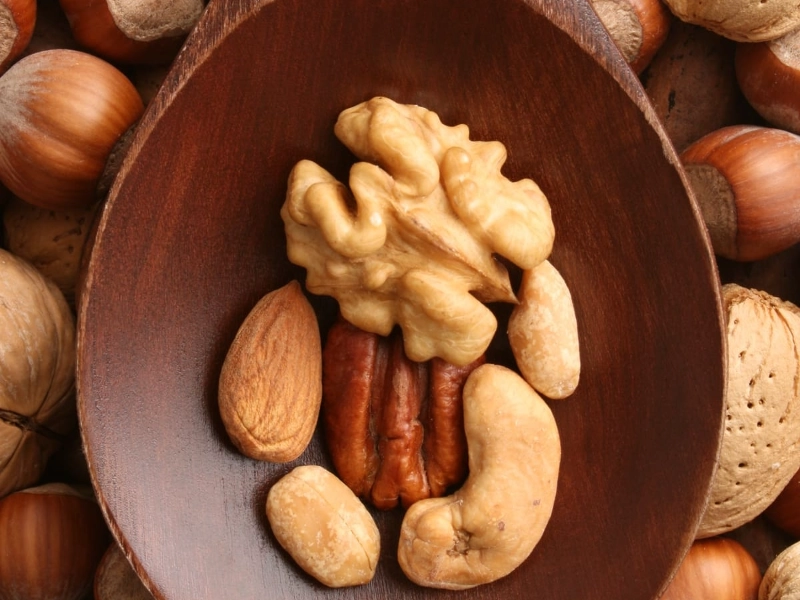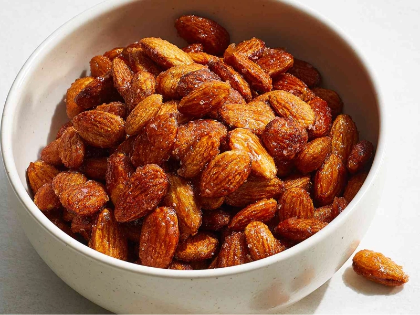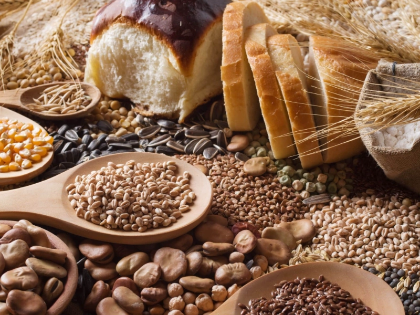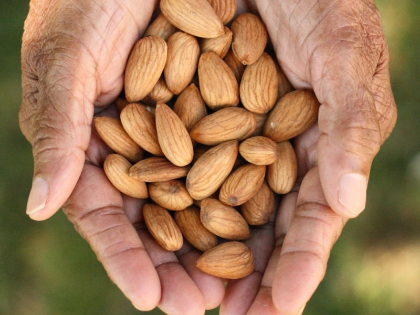How Nuts Can Support a Healthy Inflammatory Response
1.Realising Inflammation A defensive mechanism, inflammation is a normal reaction of the body to damage or infection. Still, persistent inflammation can cause a variety of health problems including autoimmune diseases, diabetes, and heart disease. To preserve best health, inflammation must be well managed. Diet significantly controls inflammatory reactions; hence, including particular foods can assist to reduce chronic inflammation. Because of their special nutritional composition, nuts are one item that can help to support a normal inflammatory response.
2.Nutritional Balance of Nuts Nutrient-dense meals loaded in good fats, protein, fibre, vitamins, and minerals are nuts. Particularly high in monounsaturated and polyunsaturated fatty acids, which have been found to lower inflammation, are they Furthermore helping the body fight oxidative stress are antioxidants like phytochemicals and vitamin E found in nuts. Nutrients taken together make nuts a great friend in controlling inflammation and supporting general health.

 5.Fibre Content and intestinal health Additionally very important in fostering a good inflammatory response is the fibre present in nuts. By encouraging good gut flora, a high-fiber diet helps to maintain gut health and can thus affect systemic inflammatory levels. Dietary fibre abound in nuts such almonds and pistachios. Reduced levels of systemic inflammation are linked to a healthy gut flora, which emphasises the need of foods high in fibres like nuts in controlling inflammation.
6.Nuts and cardiovascular health One important risk factor for cardiovascular disorders is persistent inflammation. Thanks in great part to their anti-inflammatory qualities, nuts have been well investigated for their benefits to heart health. Consuming nuts regularly has been connected to lower LDL cholesterol and better blood vessel performance. These benefits can help reduce the risk of heart disease, hence nuts are a necessary part of a diet aimed at supporting a good inflammatory response.
5.Fibre Content and intestinal health Additionally very important in fostering a good inflammatory response is the fibre present in nuts. By encouraging good gut flora, a high-fiber diet helps to maintain gut health and can thus affect systemic inflammatory levels. Dietary fibre abound in nuts such almonds and pistachios. Reduced levels of systemic inflammation are linked to a healthy gut flora, which emphasises the need of foods high in fibres like nuts in controlling inflammation.
6.Nuts and cardiovascular health One important risk factor for cardiovascular disorders is persistent inflammation. Thanks in great part to their anti-inflammatory qualities, nuts have been well investigated for their benefits to heart health. Consuming nuts regularly has been connected to lower LDL cholesterol and better blood vessel performance. These benefits can help reduce the risk of heart disease, hence nuts are a necessary part of a diet aimed at supporting a good inflammatory response.
 7.Control of Weight and Inflammation Managing inflammation calls for a healthy weight. Because of their high protein and fibre content, which foster fullness and assist to reduce hunger, nuts can help with weight management. Though high in calories, studies have found that including nuts into a balanced diet does not cause weight gain. Rather, they can let people keep a good weight, so lowering their danger of inflammation-related medical problems.
8.Simple Strategies for Including Nuts into Your Diet Including nuts into your everyday diet is easy and flexible. They are great for snacking; sprinkle them on salads; mix them into smoothies; or bake using them. For a healthy snack, think about creating a trail mix including almonds, walnuts, and dried fruit. On the other hand, including nut butter to your muesli or morning toast will offer a great and nutritious beginning to your day. The countless opportunities make it simple to take use of nuts' anti-inflammatory properties.
7.Control of Weight and Inflammation Managing inflammation calls for a healthy weight. Because of their high protein and fibre content, which foster fullness and assist to reduce hunger, nuts can help with weight management. Though high in calories, studies have found that including nuts into a balanced diet does not cause weight gain. Rather, they can let people keep a good weight, so lowering their danger of inflammation-related medical problems.
8.Simple Strategies for Including Nuts into Your Diet Including nuts into your everyday diet is easy and flexible. They are great for snacking; sprinkle them on salads; mix them into smoothies; or bake using them. For a healthy snack, think about creating a trail mix including almonds, walnuts, and dried fruit. On the other hand, including nut butter to your muesli or morning toast will offer a great and nutritious beginning to your day. The countless opportunities make it simple to take use of nuts' anti-inflammatory properties.
 9.Certain Nuts and Their Advantages Many kinds of nuts have special health advantages that can help to promote a normal inflammatory response. For instance, whilst Brazil nuts are a great source of selenium, a mineral that helps to lower inflammation, almonds are high in vitamin E and have antioxidant qualities. Pecans help heart health by being heavy in antioxidants and good fats. Changing the kinds of nuts you eat can help you to maximise the health advantages and support your body's inflammatory response.
10.Nuts and Inflammatory Response: Synopsis Because of their rich nutritional profile, nuts are a great food that can help to support a normal inflammatory response. Packed in good fats, antioxidants, and fibre, nuts support intestinal health and help fight oxidative stress. Their anti-inflammatory qualities help general well-being and help to lower the risk of chronic diseases. Including different nuts in your diet will help you take use of their health advantages and support a balanced inflammatory response, therefore improving your quality of life.
9.Certain Nuts and Their Advantages Many kinds of nuts have special health advantages that can help to promote a normal inflammatory response. For instance, whilst Brazil nuts are a great source of selenium, a mineral that helps to lower inflammation, almonds are high in vitamin E and have antioxidant qualities. Pecans help heart health by being heavy in antioxidants and good fats. Changing the kinds of nuts you eat can help you to maximise the health advantages and support your body's inflammatory response.
10.Nuts and Inflammatory Response: Synopsis Because of their rich nutritional profile, nuts are a great food that can help to support a normal inflammatory response. Packed in good fats, antioxidants, and fibre, nuts support intestinal health and help fight oxidative stress. Their anti-inflammatory qualities help general well-being and help to lower the risk of chronic diseases. Including different nuts in your diet will help you take use of their health advantages and support a balanced inflammatory response, therefore improving your quality of life.









